Many of us find flaws in our looks or want to stop the aging process. In such cases, we might turn to plastic surgery. However, these procedures don’t always guarantee that the results will be to our liking. Some celebrities have faced these problems too, and they’ve admitted to regretting going under the knife, preferring to not repeat the same mistake in the future.
1. Simon Cowell
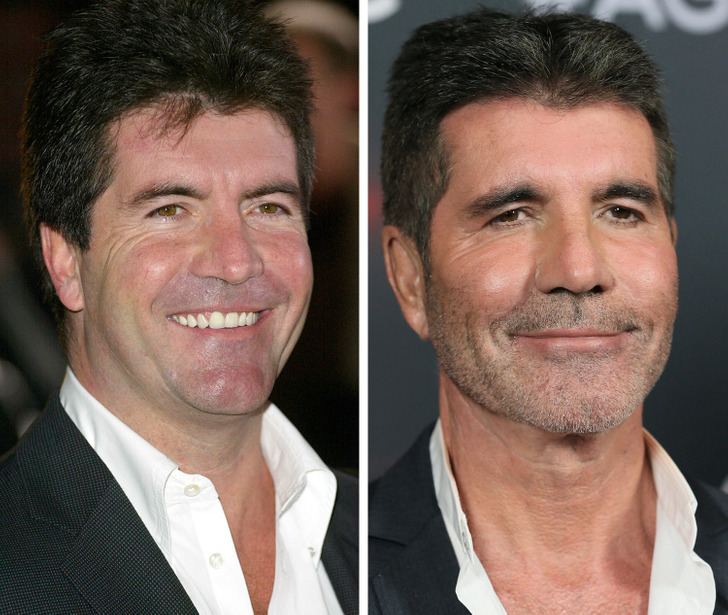
“There was a stage where I might have gone a bit too far. I saw a picture of me from ’before’ the other day and didn’t recognize it as me, first of all,” the TV personality admitted last year. Since then, Simon Cowell vowed to never use fillers again and is trying to regain his natural looks. Cowell also confessed that he had overdone it with Botox when he tried the procedure, stating that he currently prefers more simple facials.
2. Cameron Diaz
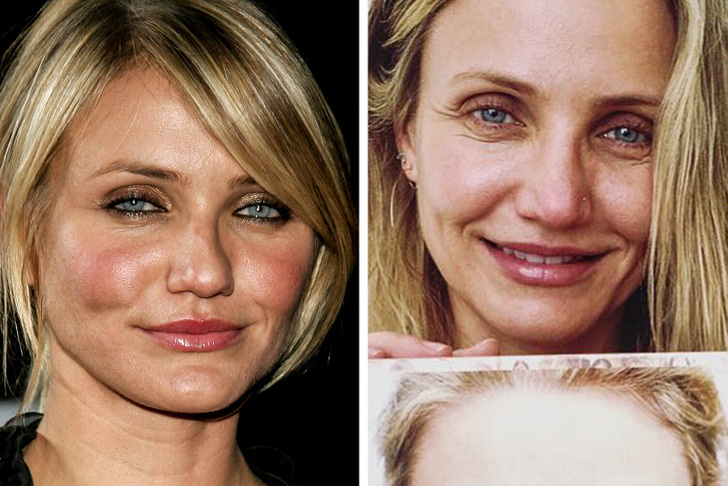
Cameron Diaz is another Hollywood star who had Botox regrets. “It changed my face in such a weird way that I was like, ’No, I don’t want to be like that,’ — I’d rather see my face aging than a face that doesn’t belong to me at all,” the actress said. Since then, Diaz has fully embraced the natural aging process, especially her laugh lines, which, according to her, only prove that she has “smiled her whole life.”
3. Anna Faris

Unsatisfied with her thin lips, Anna Faris turned to fillers to make them look plumper. And although she never went overboard, she came to later regret the procedures, as she couldn’t go back to her original lip shape. On the other hand, the actress doesn’t regret the breast augmentation that she also had around the same time.
4. Jamie Lee Curtis

After constantly being told she had puffy eyes, Jamie Lee Curtis decided to go under the knife and change their look. She’s also tried Botox, but was unsatisfied with the results in both cases. Nowadays, Curtis is a huge advocate of aging gracefully and has famously said, “Why do you want to look 17 when you’re 70? I want to look 70 when I’m 70.”
5. Heidi Montag
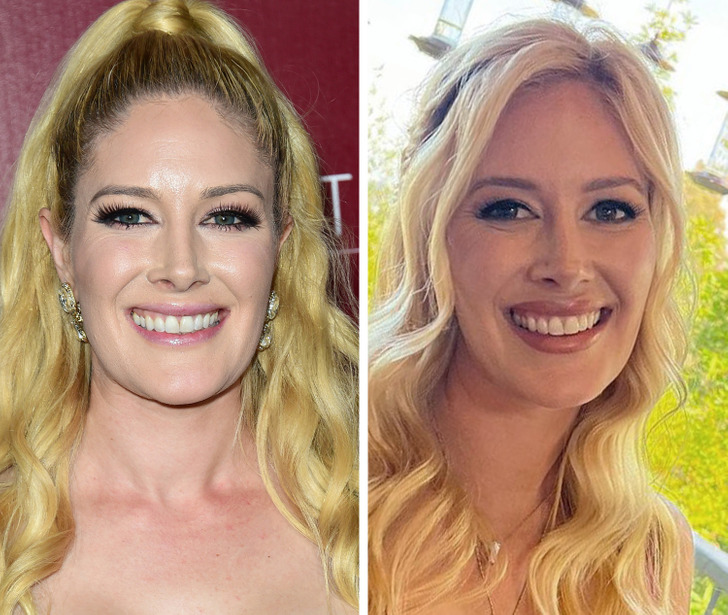
Years ago, people were shocked to find out that Heidi Montag underwent 10 procedures in a single day. Because of so many surgeries in a very short period of time, her health also suffered. “I wish I had waited and not made a decision so young because I have long-term health complications,” she admitted years later, adding, “Plastic surgery isn’t something that should be glorified. Take it seriously.”
6. Reid Ewing

Before rising to fame as part of the cast of the successful sitcom, Modern Family, Reid Ewing felt dissatisfied with his looks and thought that changing them would help his career as well. In total, Ewing had 8 cosmetic procedures and later came to regret all of them. “I wish I could go back and undo all the surgeries. Now I can see that I was fine to begin with and didn’t need the surgeries after all.”
7. Jane Fonda
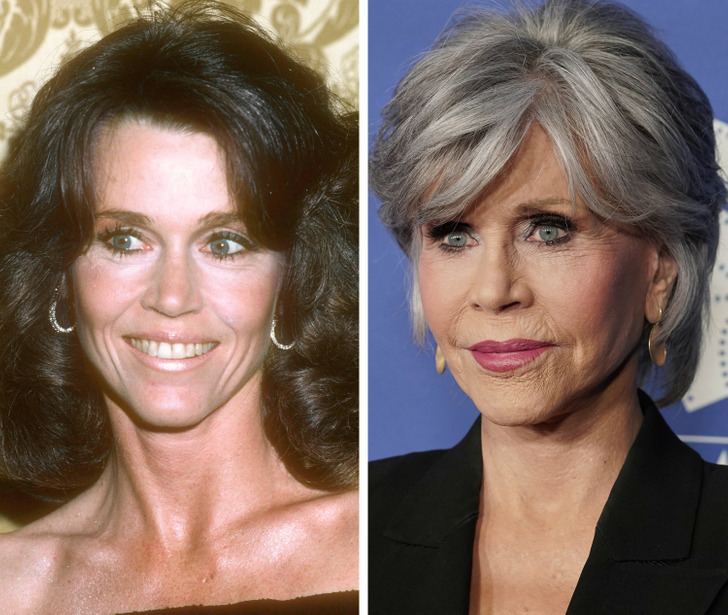
Jane Fonda opened up about getting a facelift, but also added that she’s not proud of it. The actress also decided to never undergo plastic surgery again, scared that she would end up looking “distorted.” Since then, Fonda has preferred to take care of herself in a simpler and more natural manner. “I don’t spend a lot of money on face creams or anything like that, but I stay moisturized, I sleep, I move, I stay out of the sun, and I have good friends who make me laugh,” she said.
8. Bella Hadid
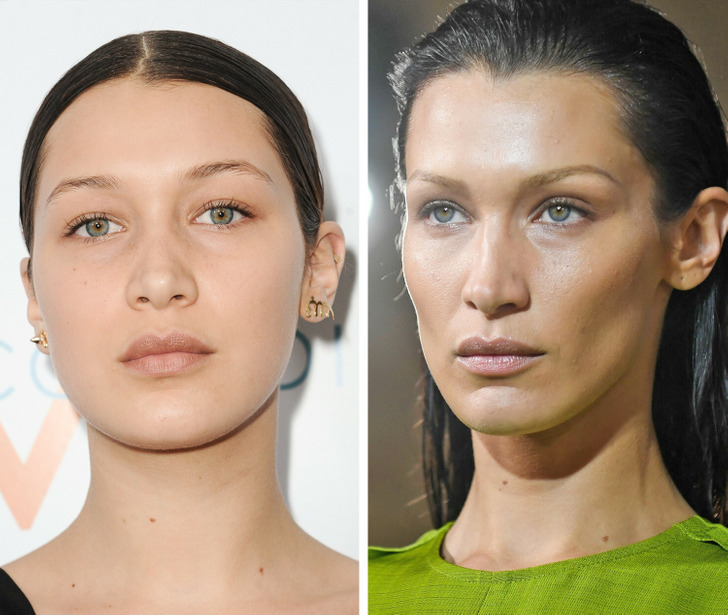
Last year, the supermodel finally cleared up plastic surgery rumors when she admitted to having had a nose job when she was only 14 years old. Hadid confessed that when she was a teenager, she felt very insecure about her looks, and being the younger sister of Gigi Hadid didn’t help that. However, she now thinks she could have learned to love the nose she was born with and regrets changing it.
9. Melissa Gilbert
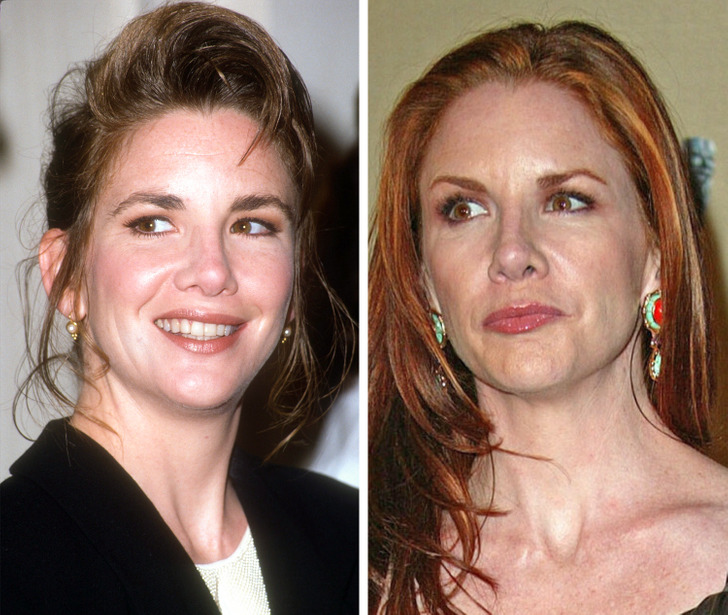
The Little House on the Prairie star had a breast augmentation and a nose job, as well as some Botox and fillers. But in more recent years, Gilbert decided to remove her breast implants and embrace her natural looks instead. “I had my breast implants removed, and I’m no longer doing fillers or Botox because I’m a 53-year-old woman, and I’m trying to embrace this process of aging,” she said back in 2018.
Have you ever considered plastic surgery? What do you think about these procedures?
Preview photo credit PopularImages / Depositphotos.com, camerondiaz / Instagram
My Son Brought Home a Stranger After School, Saying She Was His ‘Real Mom’

When Ethan burst through the door, dragging a stranger in tow and calling her his “real mom,” I thought I had stepped into some alternate reality. The woman’s tear-streaked face and trembling hands only deepened the mystery. Who was she, and why was she claiming my son?
Have you ever experienced something that made you question if everything was real? Something that made you think maybe you were dreaming?
That’s exactly how I felt when my son said some stranger was his “real mom.” I blinked a few times, half-hoping I’d snap out of it and find myself back in my normal, predictable life.

A woman standing in her house | Source: Midjourney
Before I dive into what happened, let me tell you a bit about myself.
My name’s Maureen, and I’ve always considered my life to be pretty ordinary. I met my husband, Arnold, while working at the local grocery store. He came in looking for some obscure ingredient, anchovy paste, I think, and seemed completely lost.
“Excuse me,” he said, holding up his shopping list like a white flag. “Do you happen to know where I can find this?”

A man standing in a store | Source: Midjourney
“You’re in luck,” I replied, pointing him toward aisle six. “But fair warning… It’s not exactly a crowd favorite.”
We chatted for a bit as I rang up his items, and before I knew it, he was coming back to the store every week, always finding an excuse to strike up a conversation.
“You must really like anchovies,” I teased him once.
“Not really,” he admitted with a sheepish grin. “But I do like talking to you.”

A man talking to a woman | Source: Midjourney
It wasn’t long before he asked me out.
Arnold was sweet and kind, and he had this way of making me feel like the most important person in the room.
Within a few months, we were inseparable.
When he proposed, it wasn’t some grand gesture with fireworks or a flash mob. Just a quiet moment at my parents’ house over dinner.
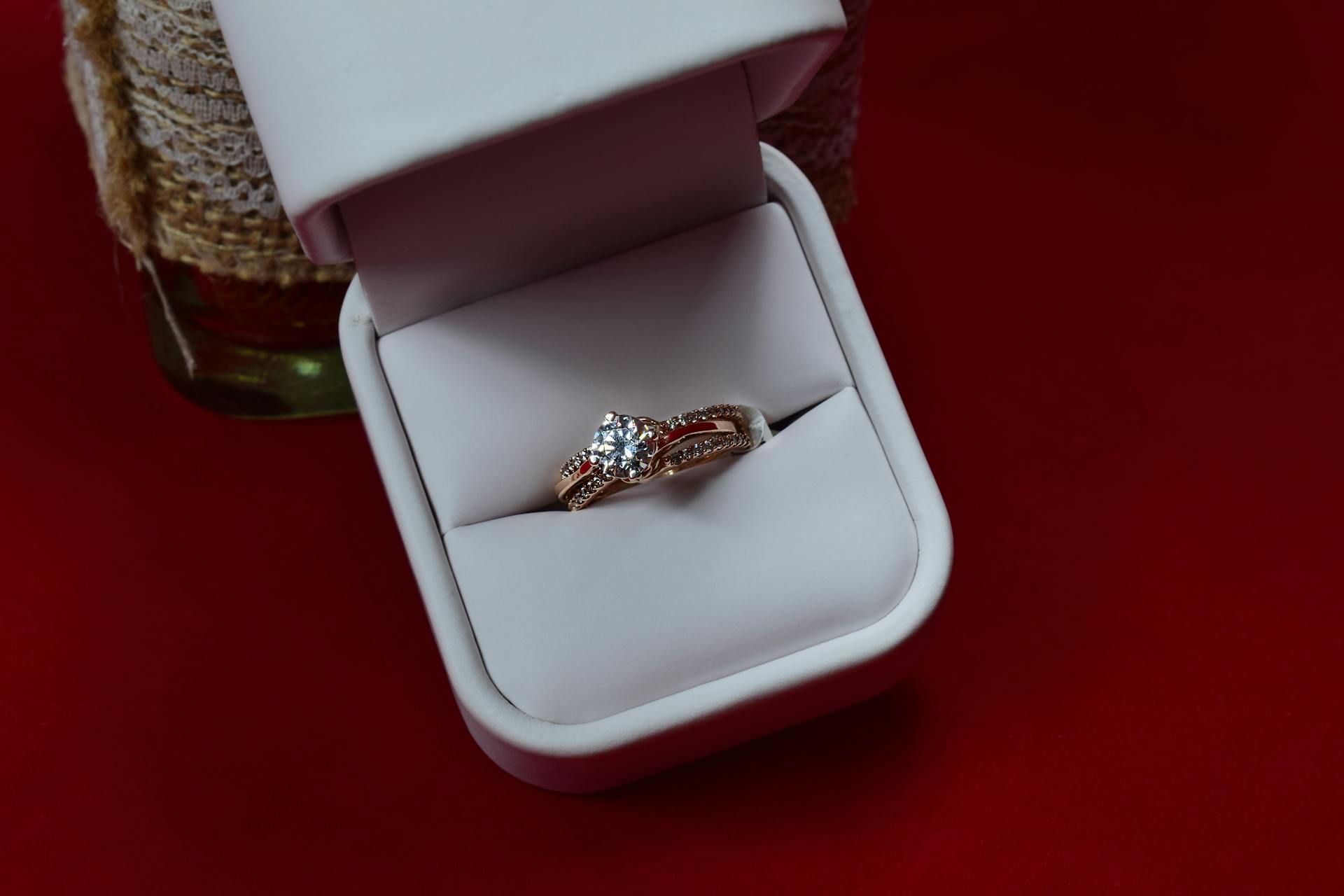
A ring | Source: Pexels
“I don’t want to spend another day without you,” he said, slipping a simple gold band onto my finger.
I said yes without hesitation.
After we got married, I kept working at the grocery store for a while. Arnold had a stable job at an accounting firm, and though money was tight, we managed.
However, things changed when I found out I was pregnant with Ethan.
The moment I held him in my arms, my priorities shifted.
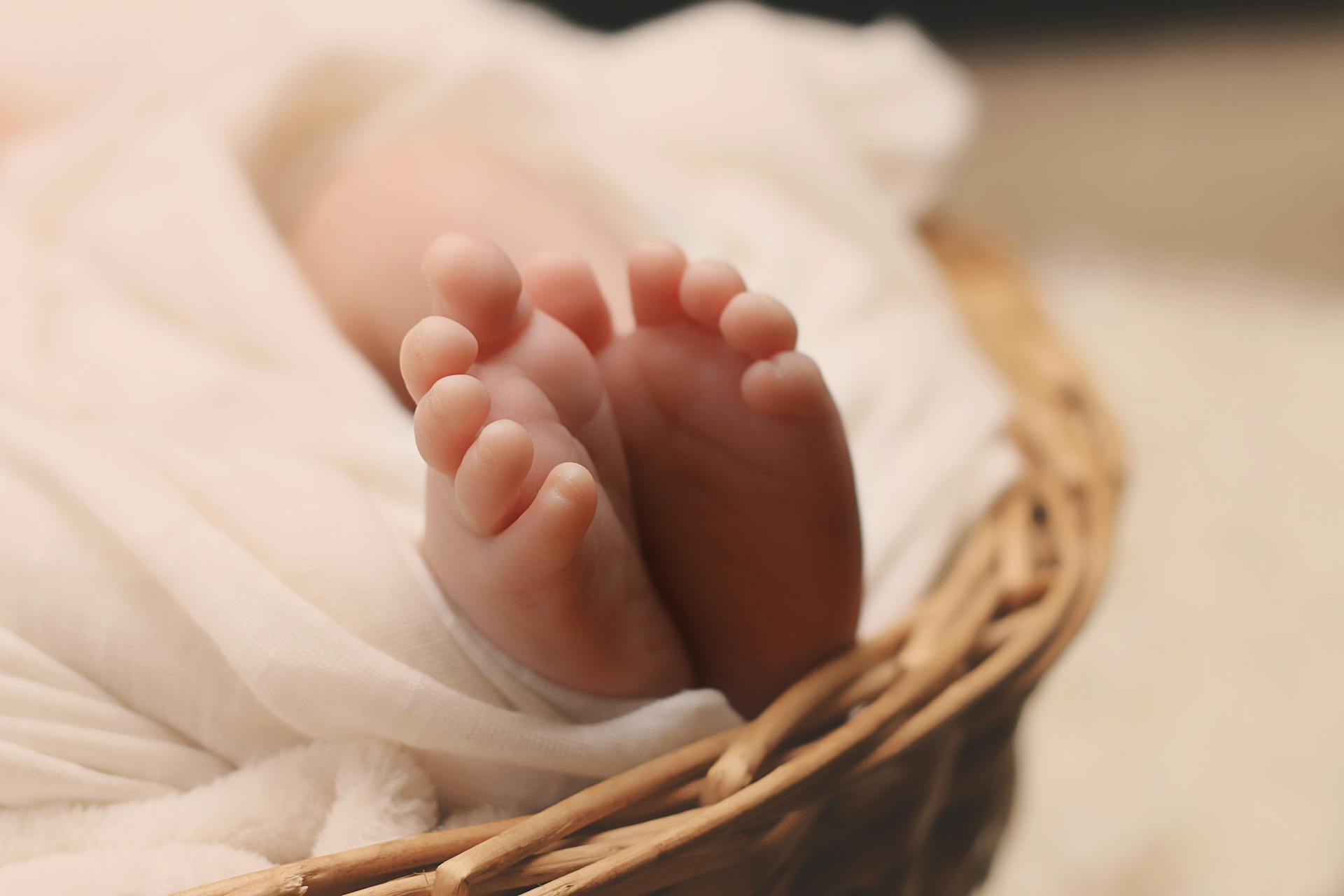
A baby’s feet | Source: Pexels
I decided to stay home and raise him, pouring all my love and energy into being the best mom I could be.
Arnold supported my decision, and together, we built a happy life.
That’s why it felt like any other day when I heard the doorbell ring as I was making lunch. It was around the time Ethan usually got home from school, so I assumed it was him.
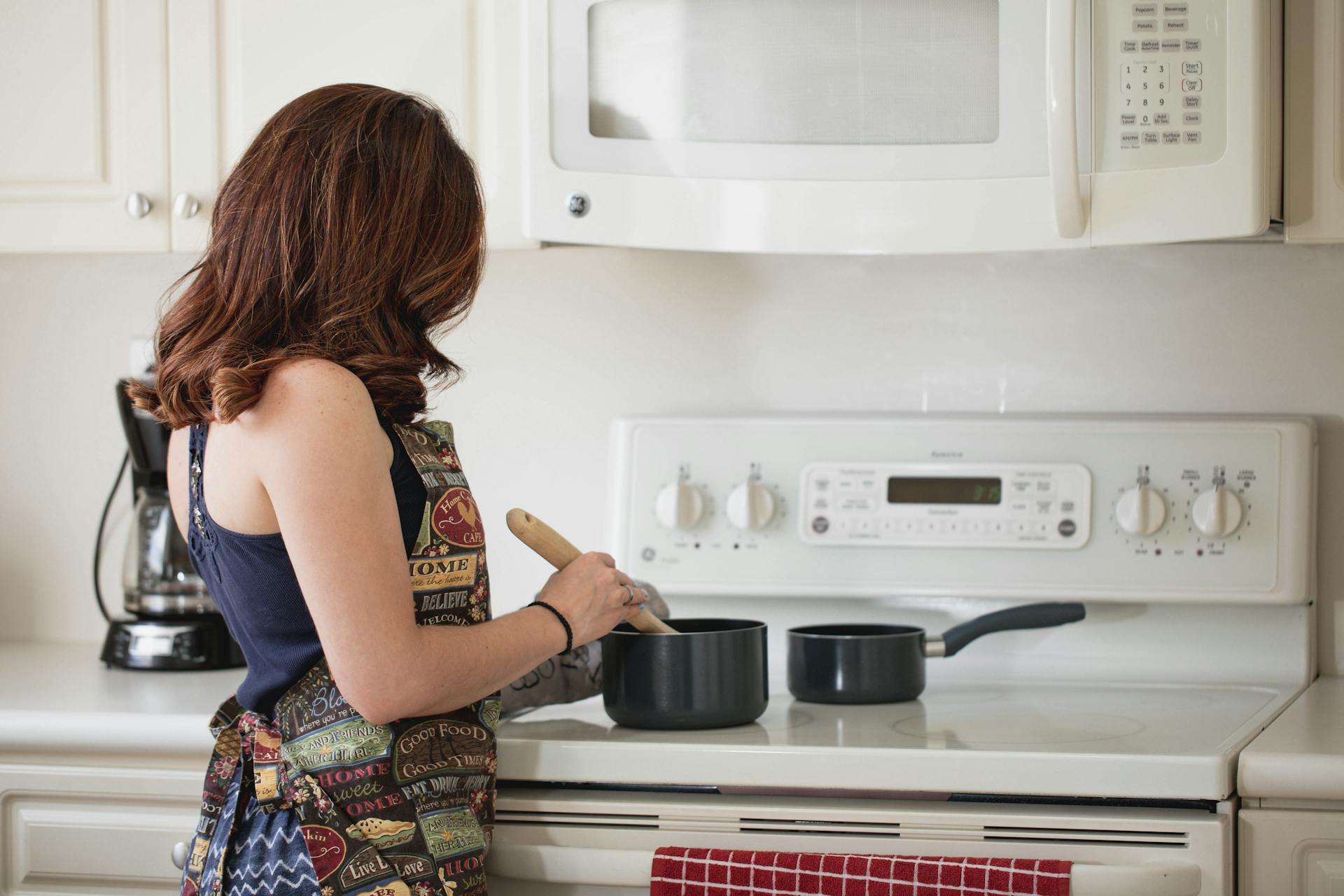
A woman working in the kitchen | Source: Pexels
The water on the stove was boiling over, so I hurried to turn down the heat, barely paying attention as I called out, “Come in, sweetheart! I’ll be there in a second!”
“Mom!” Ethan’s voice echoed from the front door. “I brought someone home to meet you!”
I grabbed a dish towel and wiped my hands.
“Okay, sweetie, but let me know who it is next time!” I said, distracted by the bubbling sauce on the stove.
It wasn’t until I glanced toward the front door that I realized something was off.

A doorknob | Source: Pexels
Standing beside Ethan wasn’t one of his friends or a neighbor.
It was a woman in her mid-40s. Her pale face and red-rimmed eyes told me she’d been crying. She clutched a small bag to her chest and looked like she was about to fall apart.
“Uh, hi,” I finally spoke. “Who’s this, Ethan?”
“This is Mrs. Harper,” Ethan replied. “She’s my real mom.”
“What?” I whispered, barely able to get the word out.

A woman standing in her house | Source: Midjourney
Mrs. Harper stepped forward, her hands visibly shaking.
“I… I’m so sorry for the confusion,” she stammered. “Ethan, sweetheart, why don’t you go wash up? We’ll talk in a minute.”
Ethan pouted, clearly not understanding the gravity of the situation. “But I wanna stay!”
“Go,” I said firmly.
Ethan looked startled but obediently trudged toward the bathroom. As soon as I heard the door close, I turned back to the woman.
“Who are you?” I demanded. “And why are you here with my son? What’s going on? Are you crazy?”

A woman looking straight ahead | Source: Midjourney
“I’m not crazy,” she began. “But there’s something you don’t know. Something neither of us knew… until now. I think Ethan is my son. My biological son.”
My brain refused to process her words.
“That’s ridiculous,” I snapped. “Ethan is my son. I gave birth to him. I’ve raised him. What are you talking about?”
“I-I’m sorry,” she said. “Please let me explain.”
I didn’t want to hear her explanation, but I couldn’t seem to stop her either.
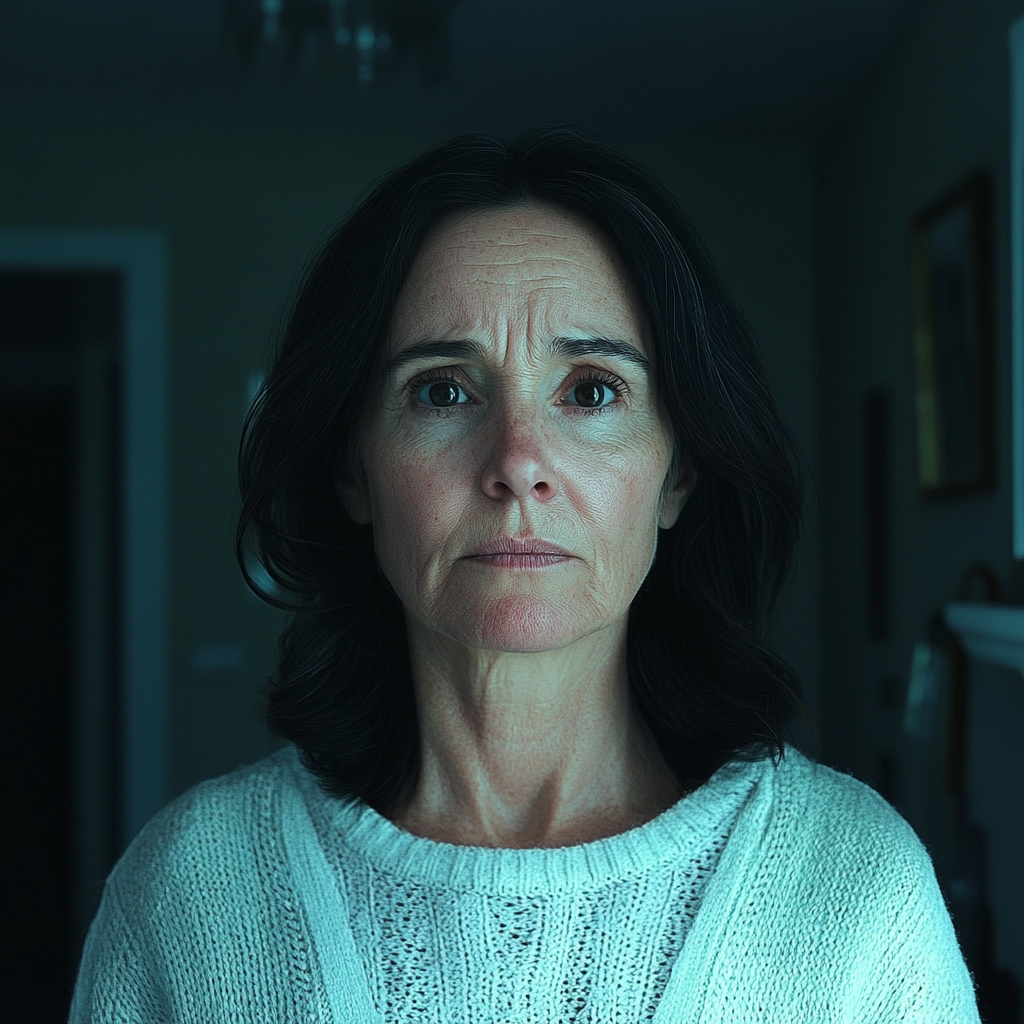
A woman standing in a house | Source: Midjourney
“Ethan was born in MJSCR Hospital, right?” she asked.
I nodded cautiously. “Yes, but—”
“So was my son, Charlie,” she interrupted. “He would’ve been ten this year. For years, I didn’t suspect anything. But as Charlie grew older, I started noticing things. Little things that didn’t add up. He didn’t look like me or my husband. People even joked about it sometimes, saying he must take after some distant relative.”
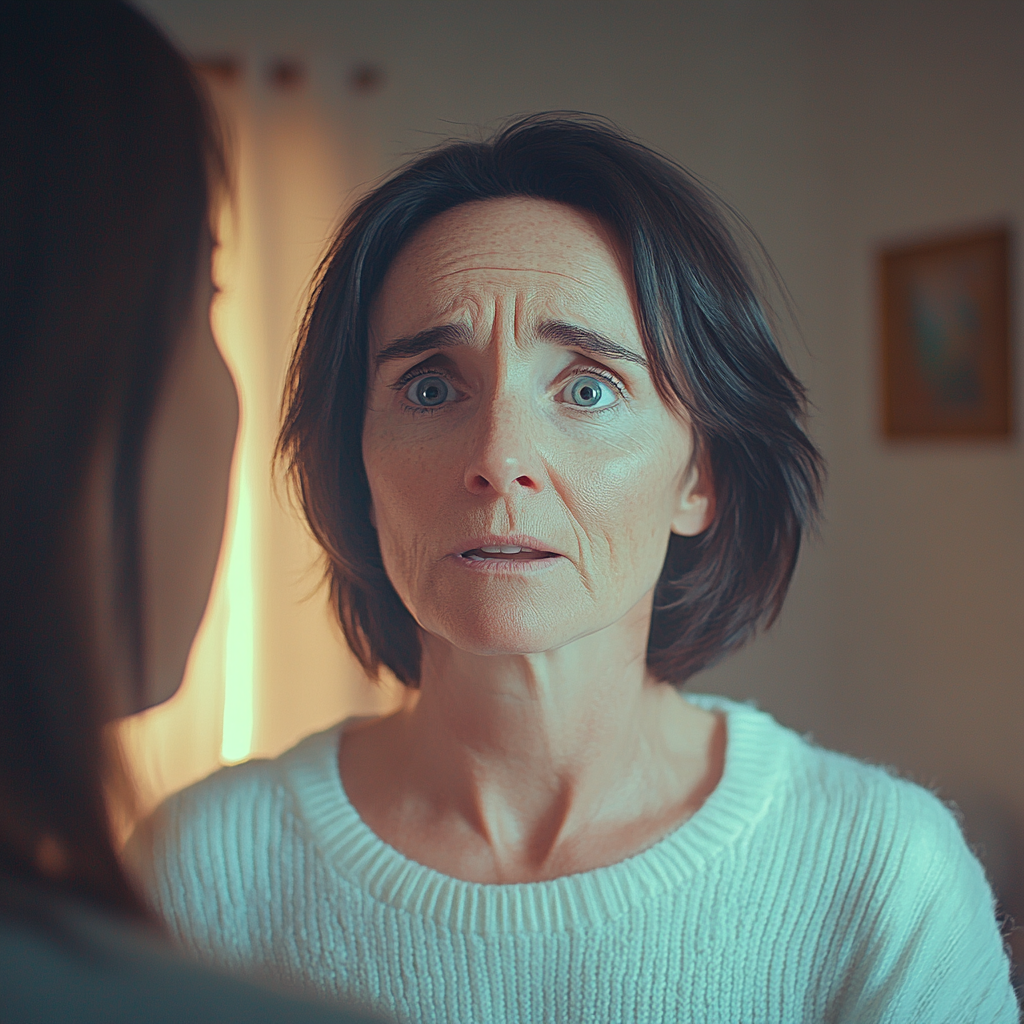
A woman talking to another woman | Source: Midjourney
She paused, wiping at her tears.
“But I brushed it off. He was my son, and that was all that mattered. But when Charlie turned eight, he had to do a family tree project for school. He started asking questions, and I… I couldn’t give him the answers he wanted.”
She sighed.
“It got me thinking, and I decided to take a DNA test. Not because I doubted him, but because I thought it might give us more information about our ancestry.”

A back view shot of a boy | Source: Pexels
She broke down then, her words coming out in fragments.
“The results came back… and they said Charlie wasn’t mine. I didn’t know what to do. I told myself it was a mistake. I even retook the test, but the results were the same.”
“So, you think Ethan is…?” I asked, unable to complete my sentence.

A woman standing in her house | Source: Midjourney
She nodded.
“After Charlie passed away because of leukemia, I couldn’t stop thinking about the DNA test. I needed answers. So, I hired a private investigator, and he found hospital records that led me here. Our babies were accidentally exchanged at the hospital. And Ethan… he’s the right age. When I saw him today at school, I just knew.”
“This is insane,” I said, shaking my head. “Even if you think this is true, you can’t just show up and tell a ten-year-old boy that you’re his real mom.”

A woman talking to another woman in her house | Source: Midjourney
“I know,” she said. “I wasn’t thinking. When I saw him, I couldn’t stop myself. He looks so much like my husband used to when he was a boy. I’m so sorry.”
I felt like I was drowning.
My son was my entire world, and now this stranger was claiming he wasn’t mine. It didn’t make sense. It couldn’t be true.
“You’ve got this all wrong,” I said. “Ethan is my son. He’s mine.”
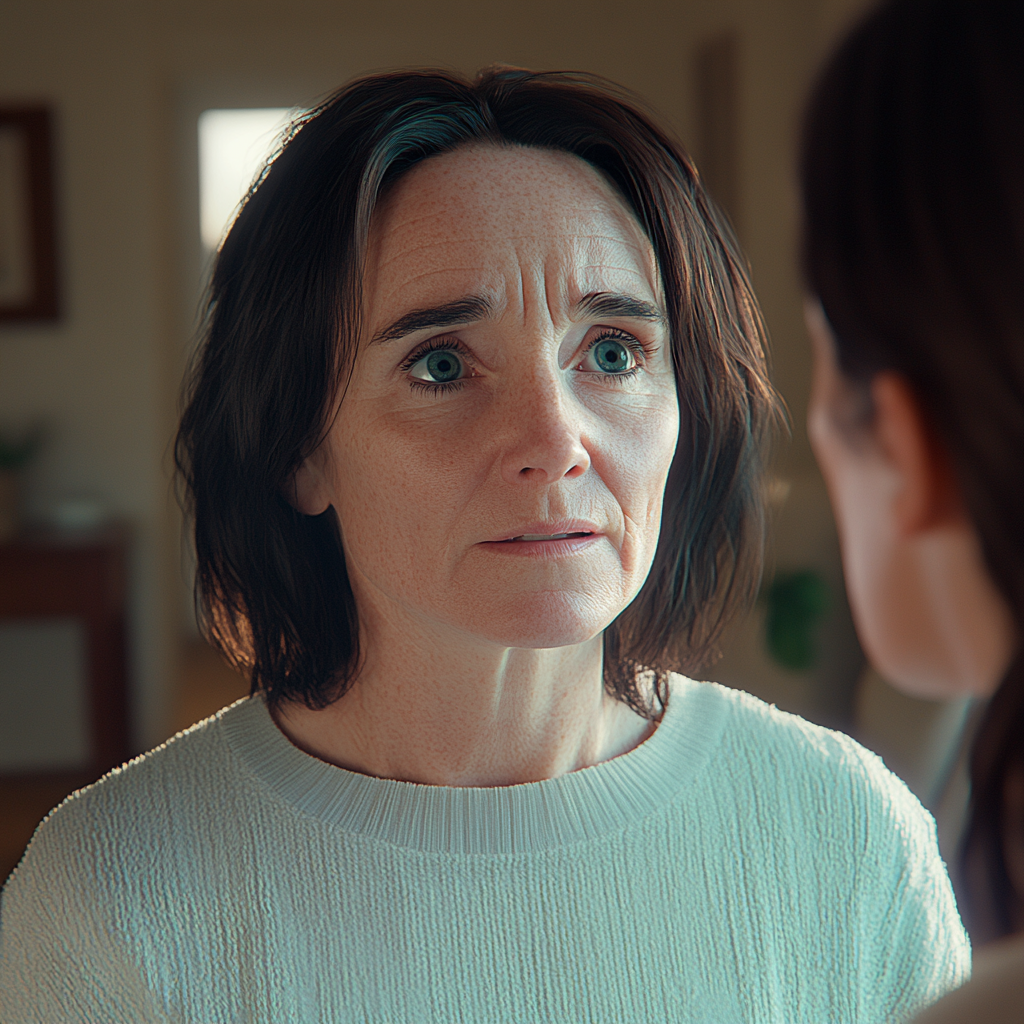
A woman talking | Source: Midjourney
“I understand why you’d feel that way,” she replied. “But I’m begging you… please, let’s do a DNA test. If I’m wrong, I’ll leave and never bother you again. But if I’m right…”
“I won’t let you take my son away from me even if you’re right,” I told her. “I’ll take the test. But if you’re lying, you’ll regret ever coming here.”
She nodded.
The next few days were pure agony.
Every time I looked at Ethan, I felt a knot tighten in my chest. He was my son and I couldn’t let anything change that fact.
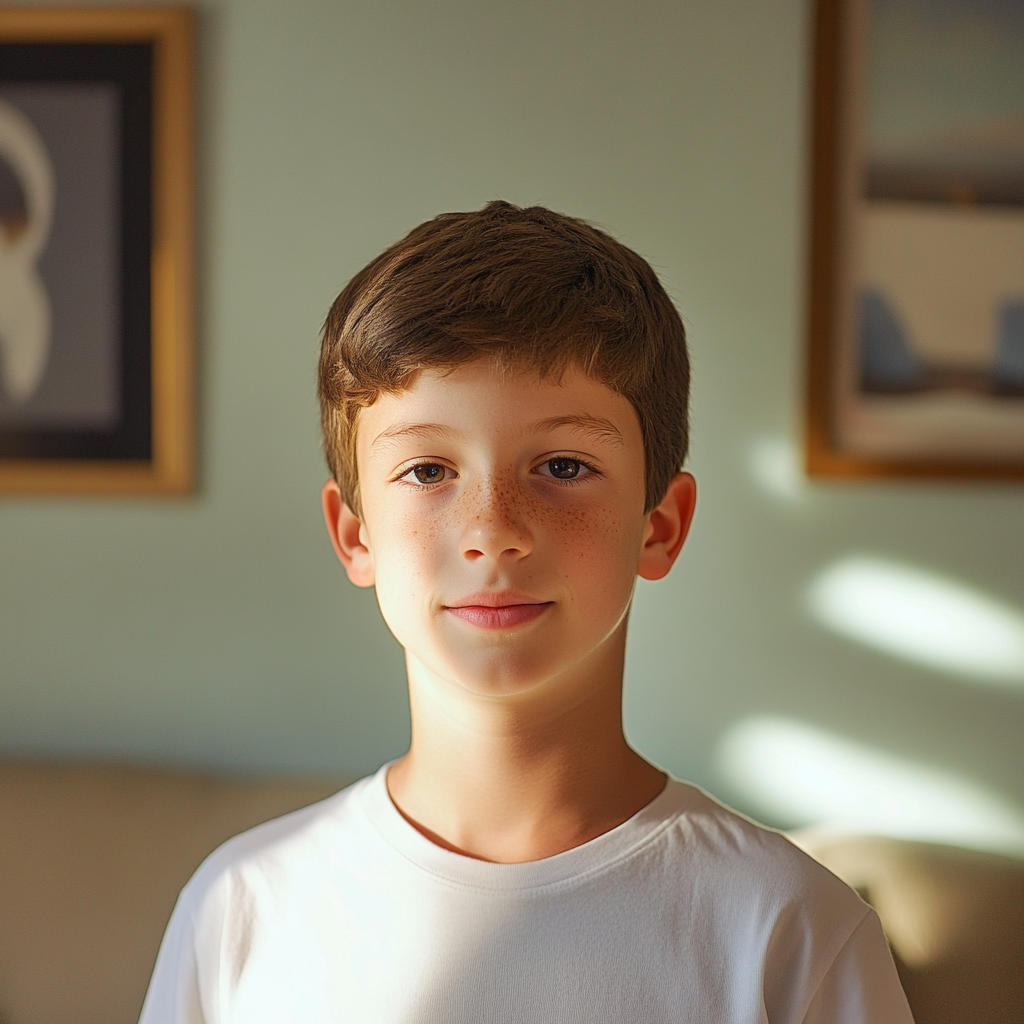
A boy standing near a couch | Source: Midjourney
Arnold was furious when I told him what had happened.
“This is absurd,” he snapped. “Some random woman waltzes in and claims our son isn’t ours? It’s a scam, Maureen.”
“She seemed sincere,” I said, though I wasn’t entirely sure myself. “And if she’s lying, the DNA test will prove it.”
“You actually agreed to this?” Arnold looked at me with disbelief. “Do you realize what this is going to do to Ethan?”
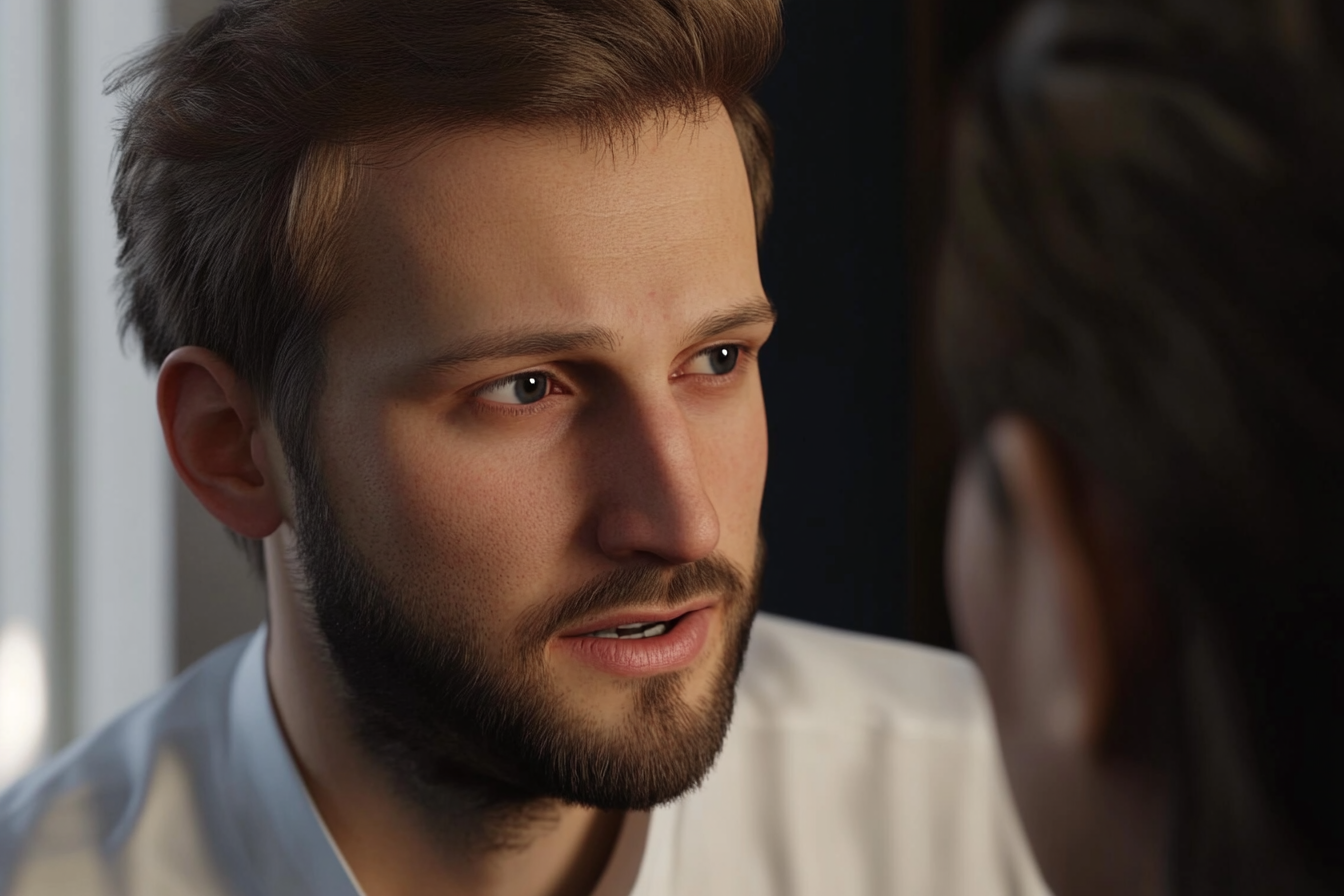
A man talking to his wife | Source: Midjourney
He was right. This could tear our family apart. But the seed of doubt was already there, and I knew it wouldn’t go away without answers.
“I didn’t have a choice,” I whispered. “What if she’s telling the truth?”
Arnold didn’t respond. Instead, he shook his head and stormed out of the room, leaving me alone with my thoughts.
Finally, the results arrived.
My hands shook as I opened the envelope, Arnold standing stiffly by my side.

An envelope | Source: Pexels
I read the words once. Then again. But my brain struggled to process them.
Ethan wasn’t our biological child.
Arnold snatched the paper from my hands.
“This has to be wrong,” he said. “There’s no way…”
But there it was, in black and white.
The boy we had raised, loved, and called our own wasn’t ours.
We met Mrs. Harper at a park to share the results.
It felt safer there, out in the open, with Ethan nearby but far enough away that he couldn’t overhear.

A metal fence in a park | Source: Pexels
Mrs. Harper’s face crumpled the moment she saw the paper in my hand.
“I knew it,” she whispered. “I knew he was mine.”
Ethan was blissfully unaware, swinging high on the playground and laughing as the wind tousled his hair.
“What now?” I asked.
Mrs. Harper took a shaky breath.
“I don’t want to take him from you, she said. “You’ve raised him. He’s your son in every way that matters. I just need to be part of his life. Even if it’s small.”
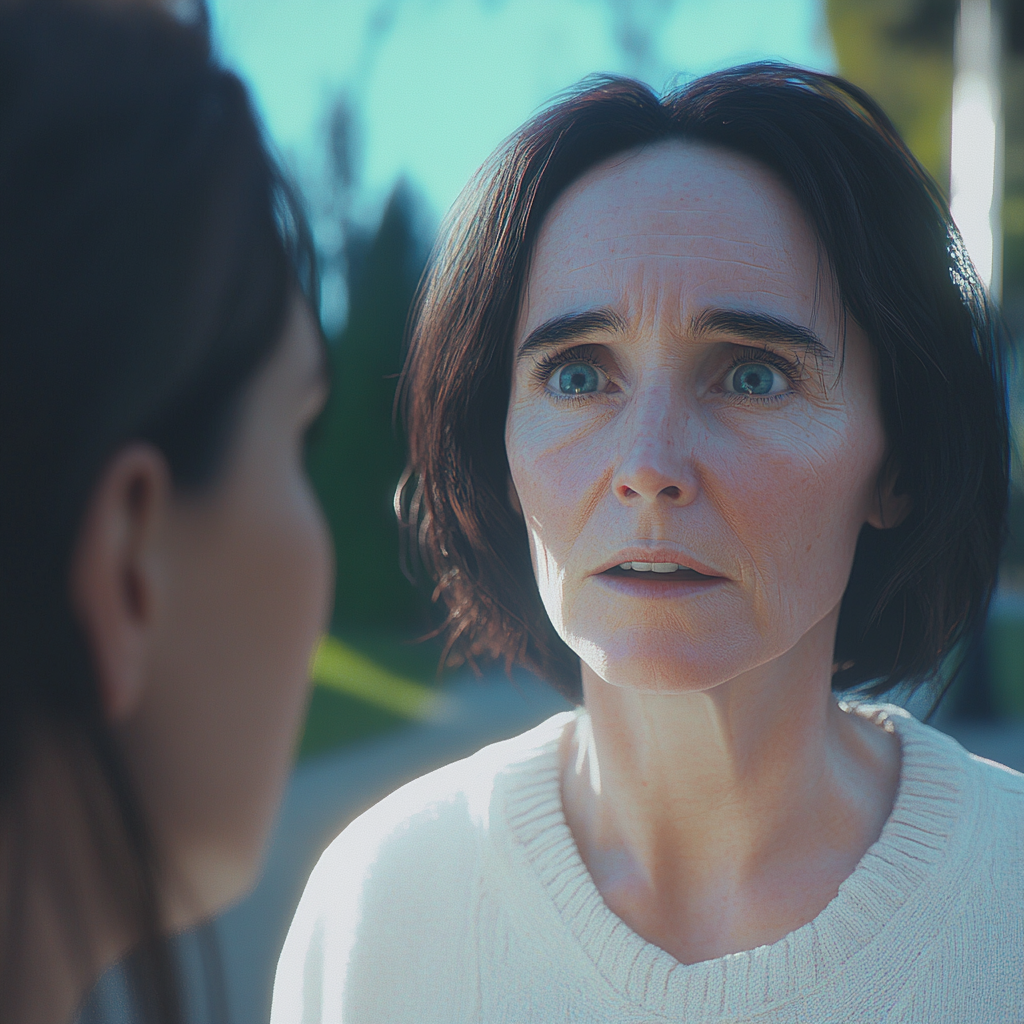
A woman talking to another woman in a park | Source: Midjourney
Arnold clenched his fists.
“Absolutely not,” he said. “You’ve already done enough damage.”
“Arnold,” I said softly.
I could see Mrs. Harper’s pain. Her grief was etched into every line of her face. She had already lost one son, and I was sure we couldn’t deny her the chance to know the other.
After a long, difficult conversation, we agreed to let her visit occasionally.
It wasn’t an easy decision, and Arnold fought me on it for days afterward. But deep down, I knew it was the right thing to do.

A woman smiling | Source: Midjourney
In the weeks that followed, Mrs. Harper slowly became a part of our lives.
At first, it was awkward and tense, but over time, things improved. Talking to her made me realize she was just a grieving mother trying to find a way to move forward.
Ethan didn’t know the full truth, and we decided to keep it that way.
To him, Mrs. Harper was just a new friend who cared about him deeply. And maybe that was enough.
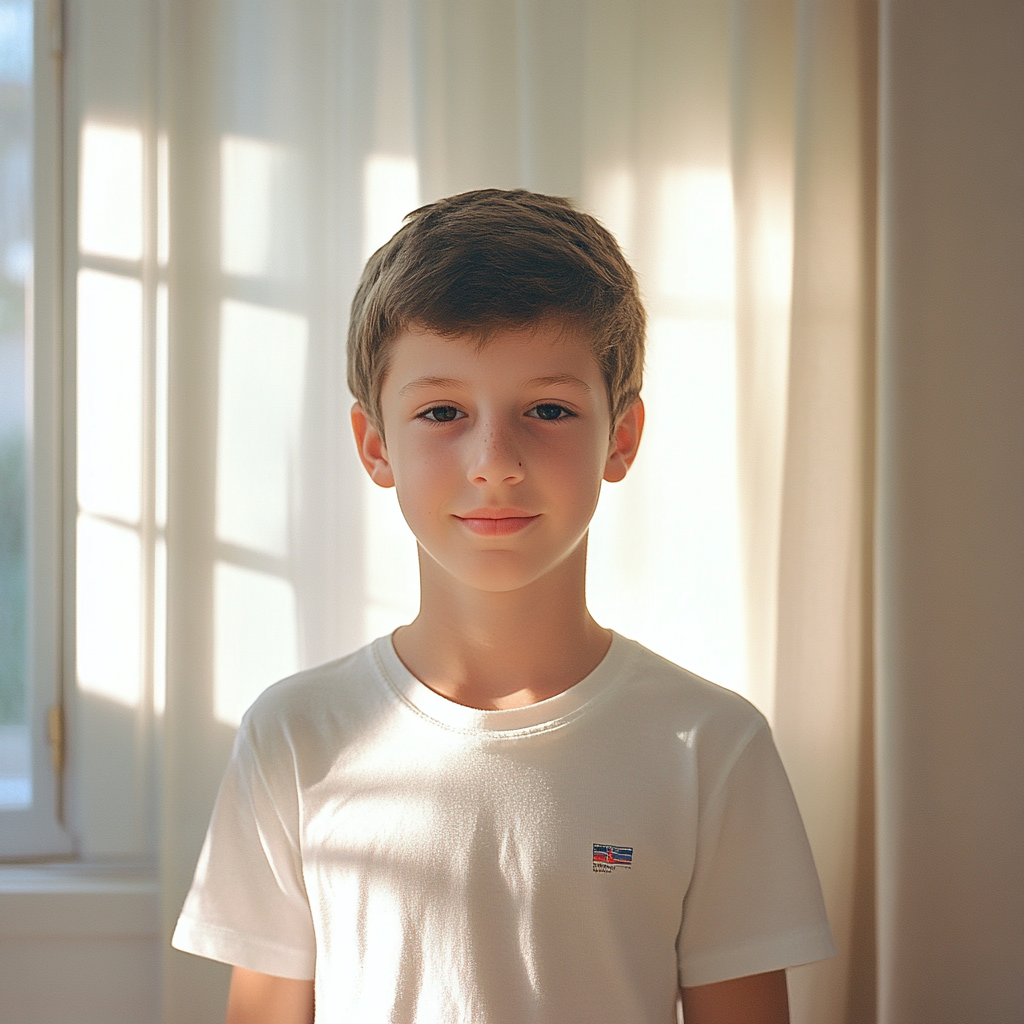
A boy smiling | Source: Midjourney
If you enjoyed reading this story, here’s another one you might like: Diana was painfully preparing herself to say goodbye to her dying husband in the hospital. While she was struggling to process that he had only a few weeks left to live, a stranger approached and whispered the jolting words: “Set up a hidden camera in his ward… you deserve to know the truth.”
This work is inspired by real events and people, but it has been fictionalized for creative purposes. Names, characters, and details have been changed to protect privacy and enhance the narrative. Any resemblance to actual persons, living or dead, or actual events is purely coincidental and not intended by the author.
The author and publisher make no claims to the accuracy of events or the portrayal of characters and are not liable for any misinterpretation. This story is provided “as is,” and any opinions expressed are those of the characters and do not reflect the views of the author or publisher.
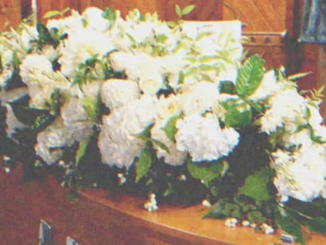

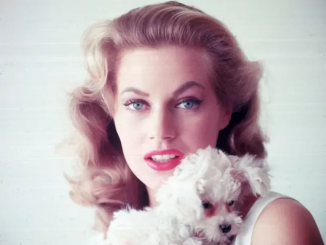
Leave a Reply